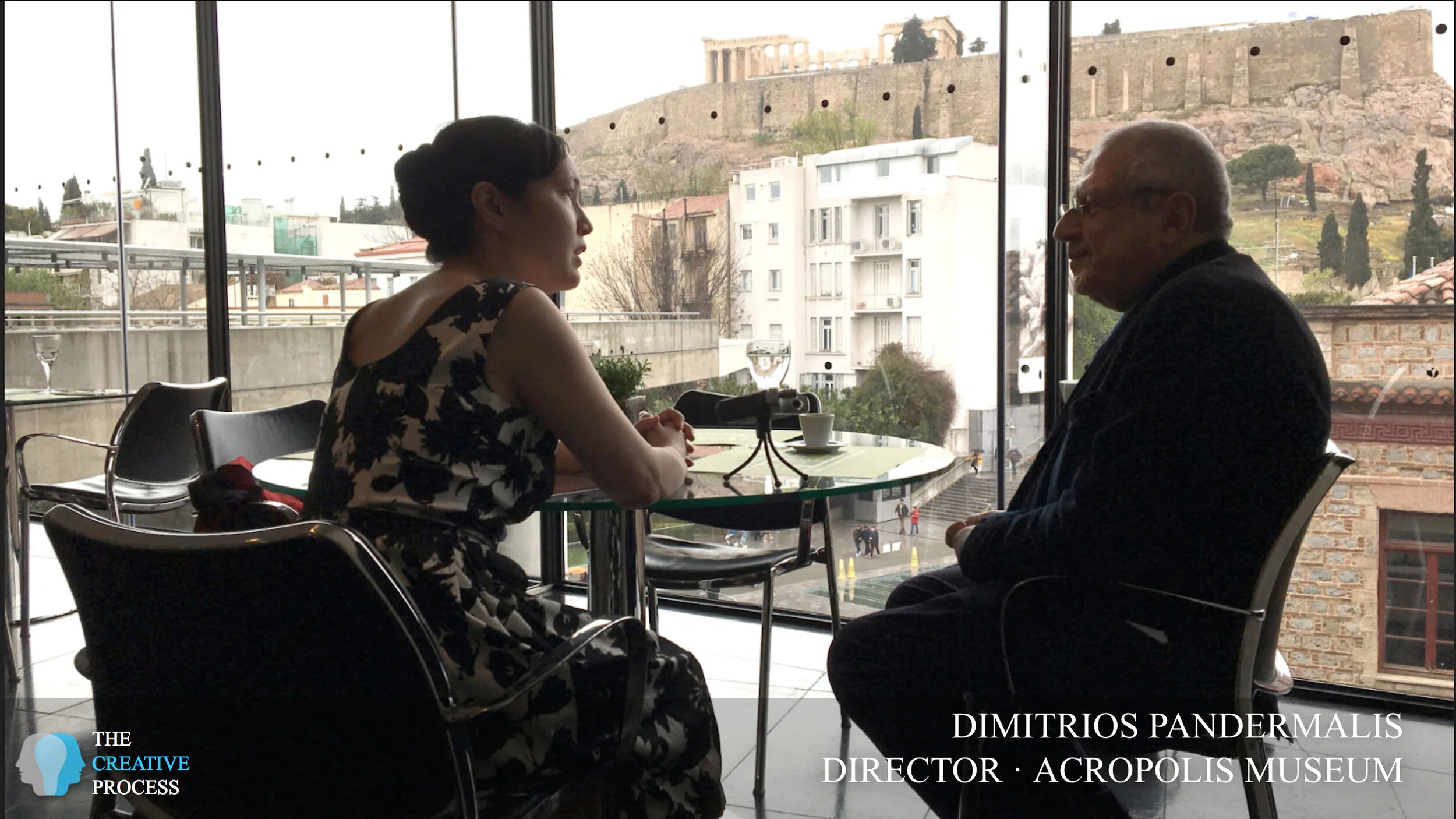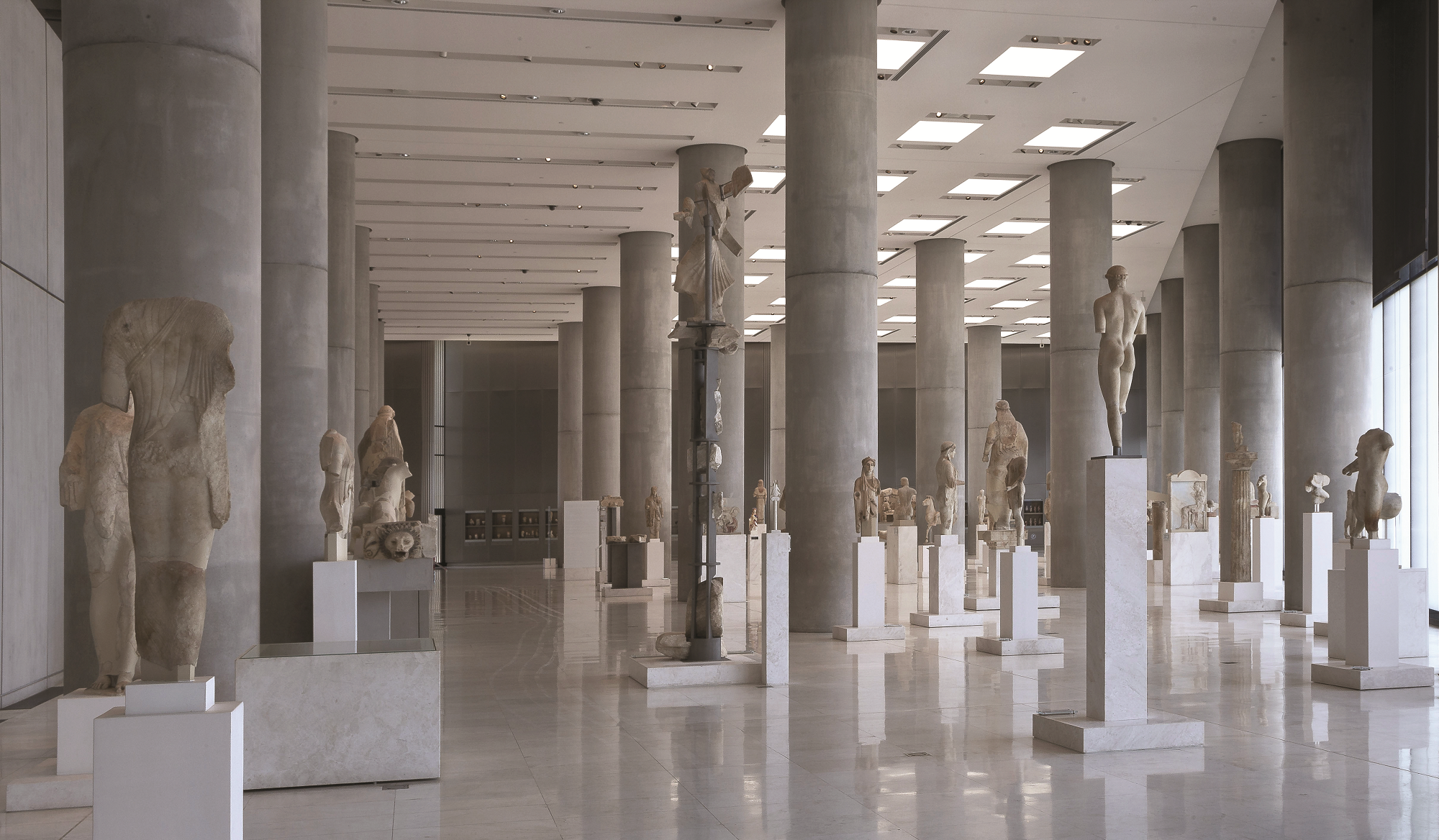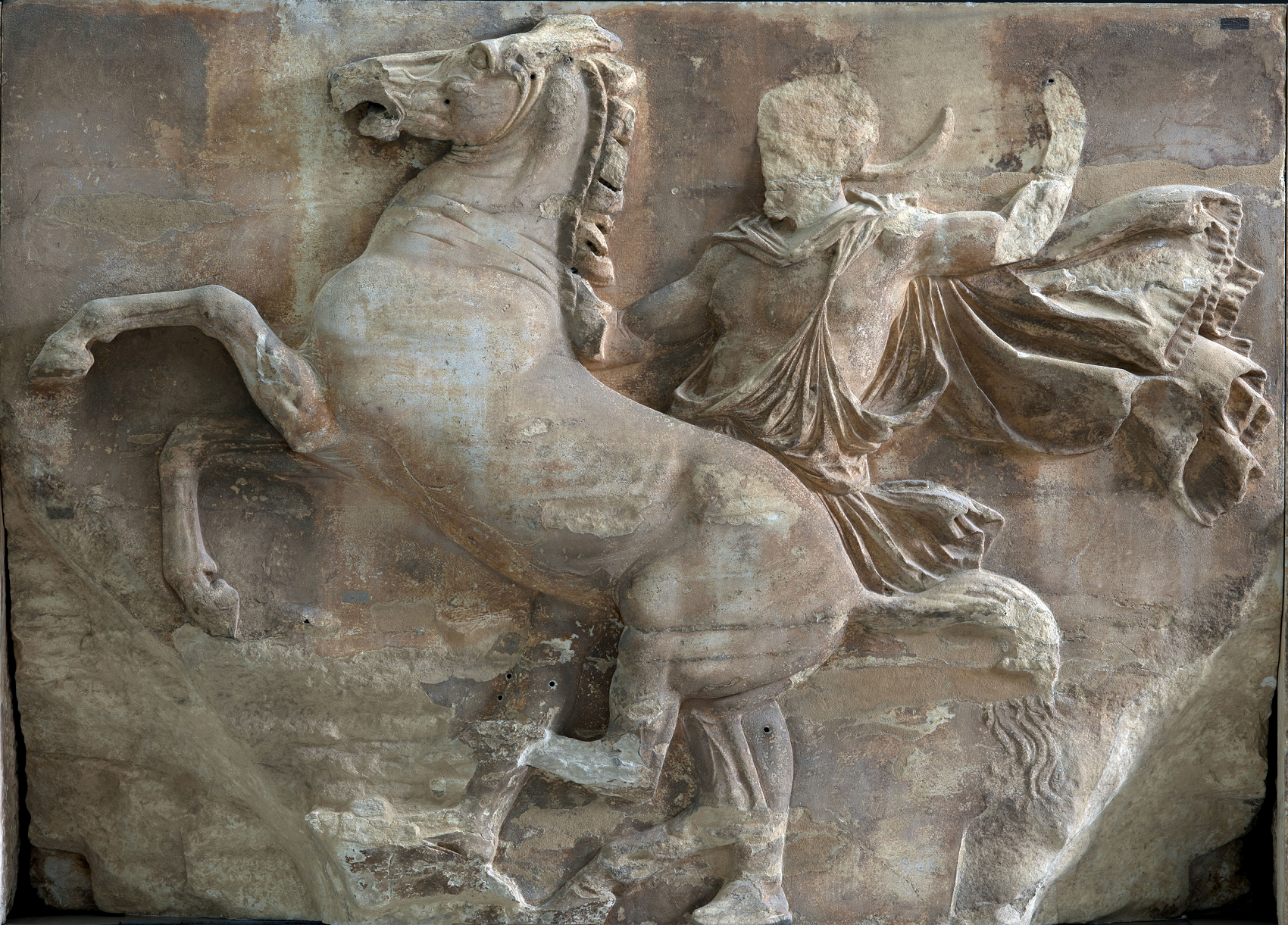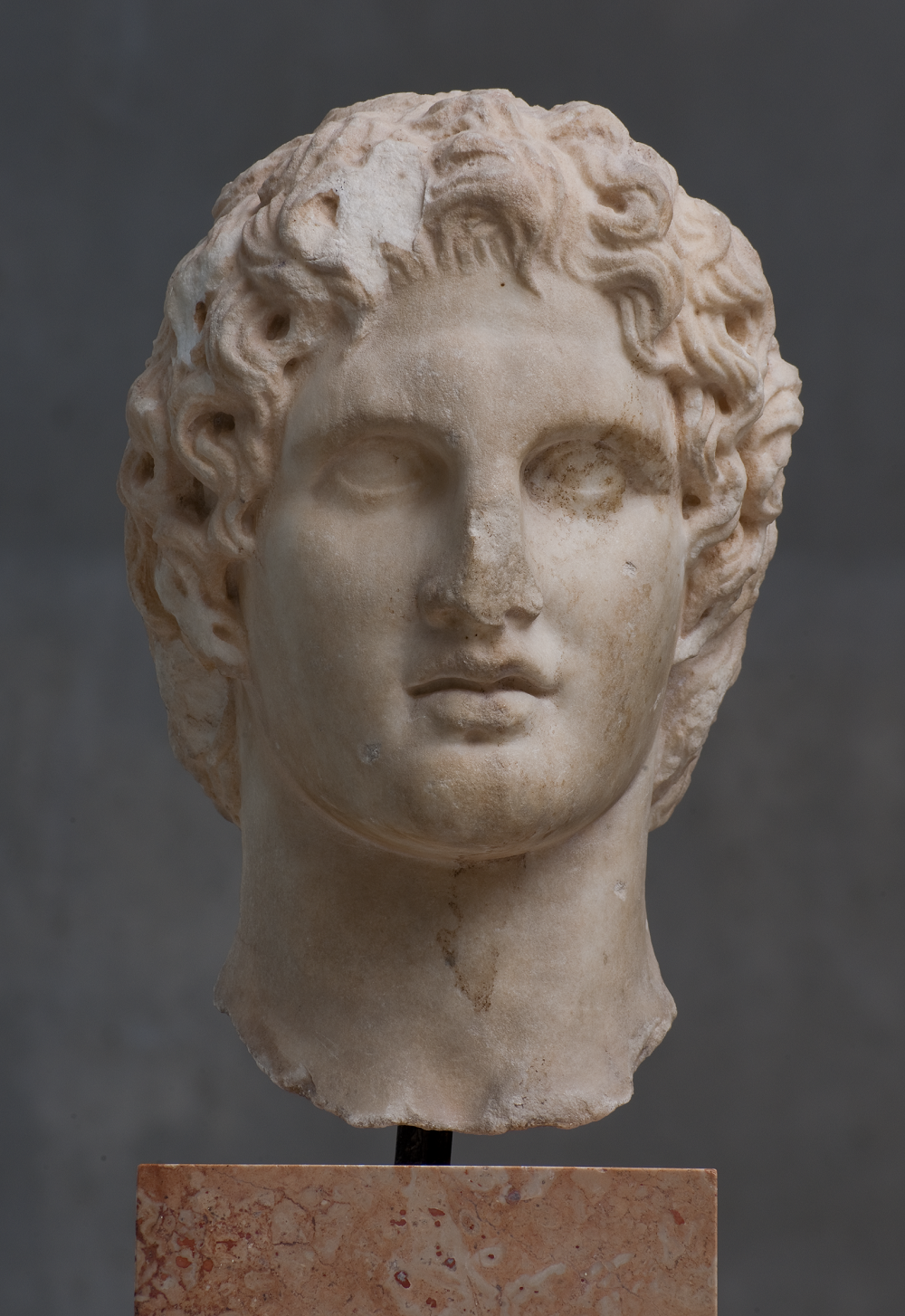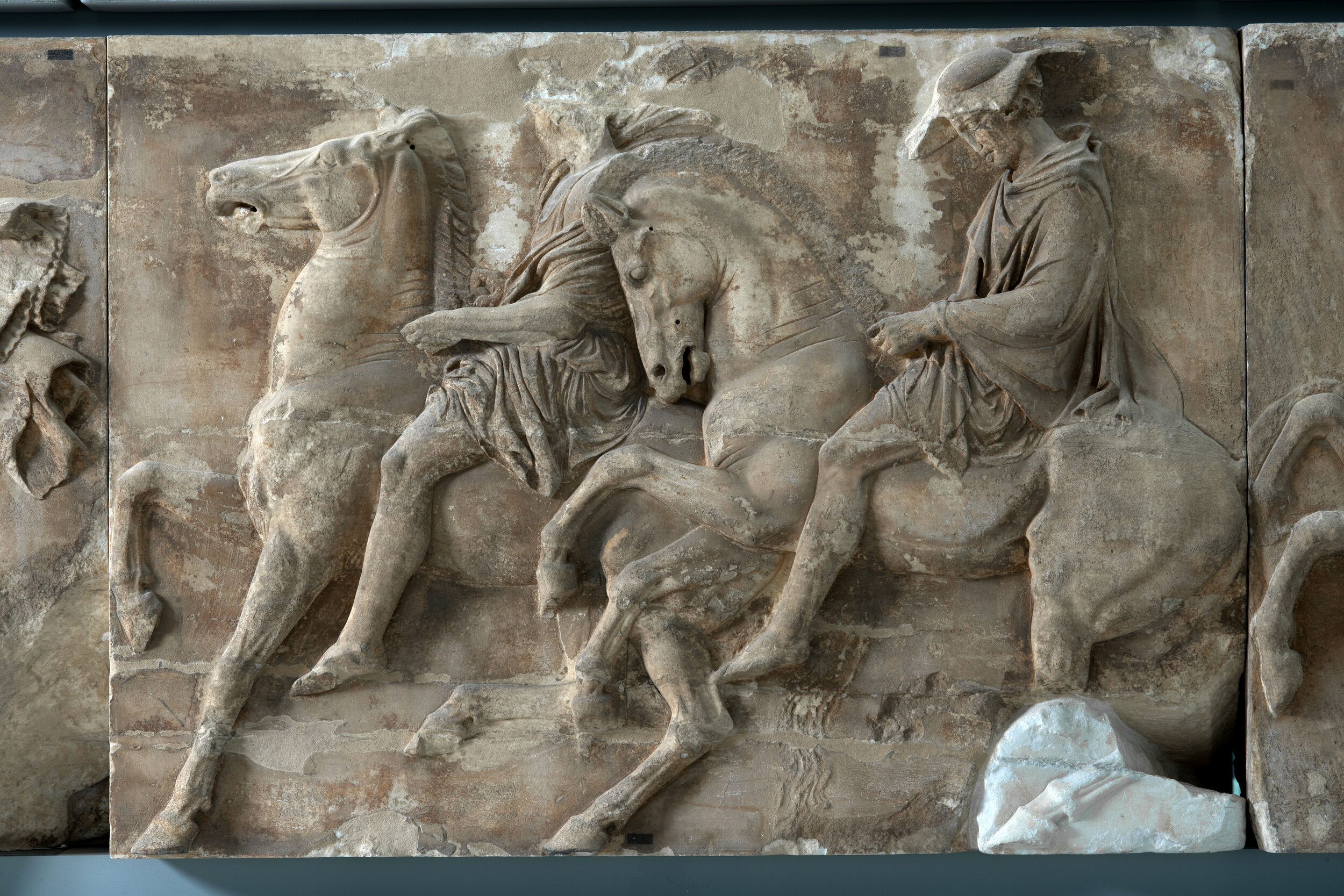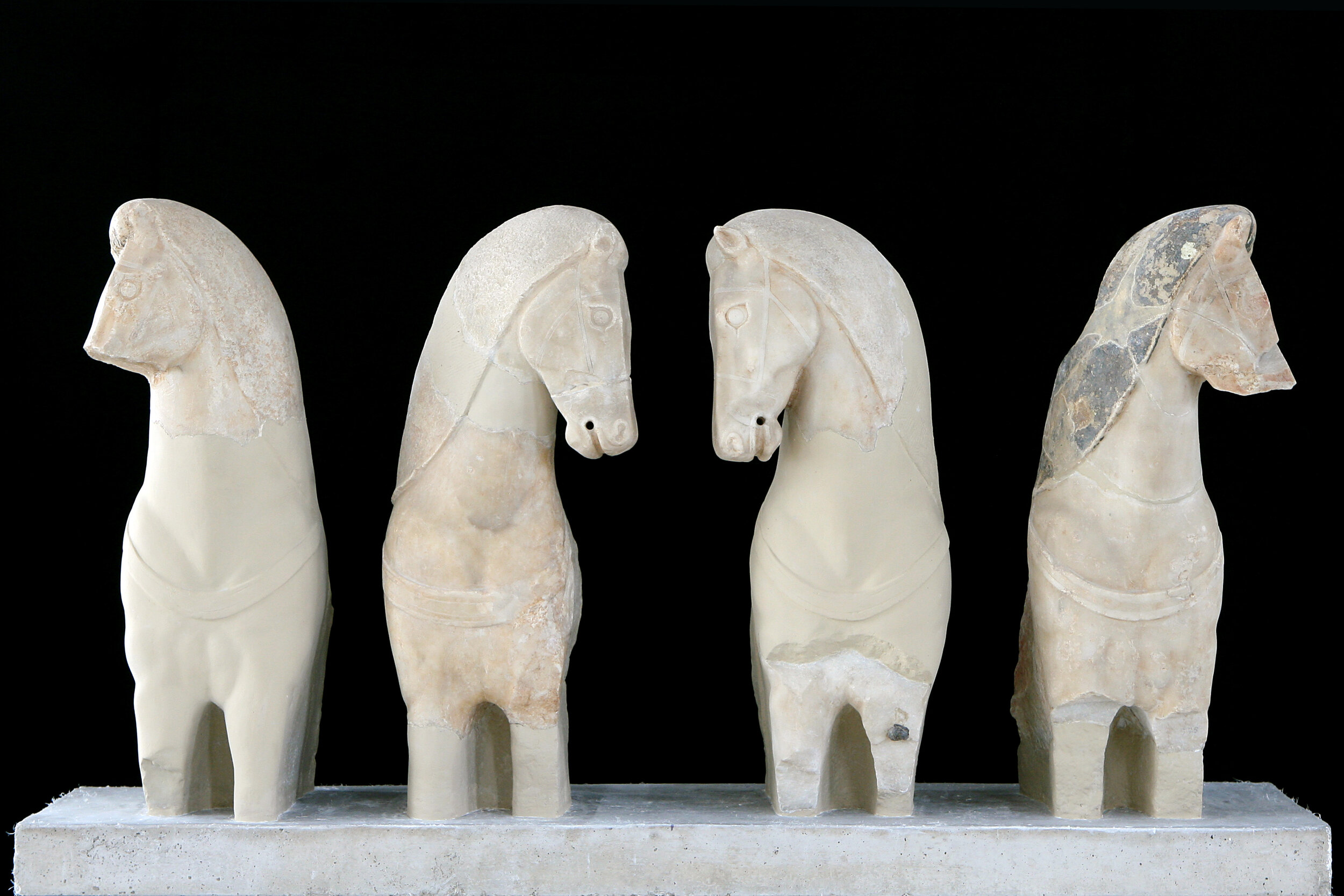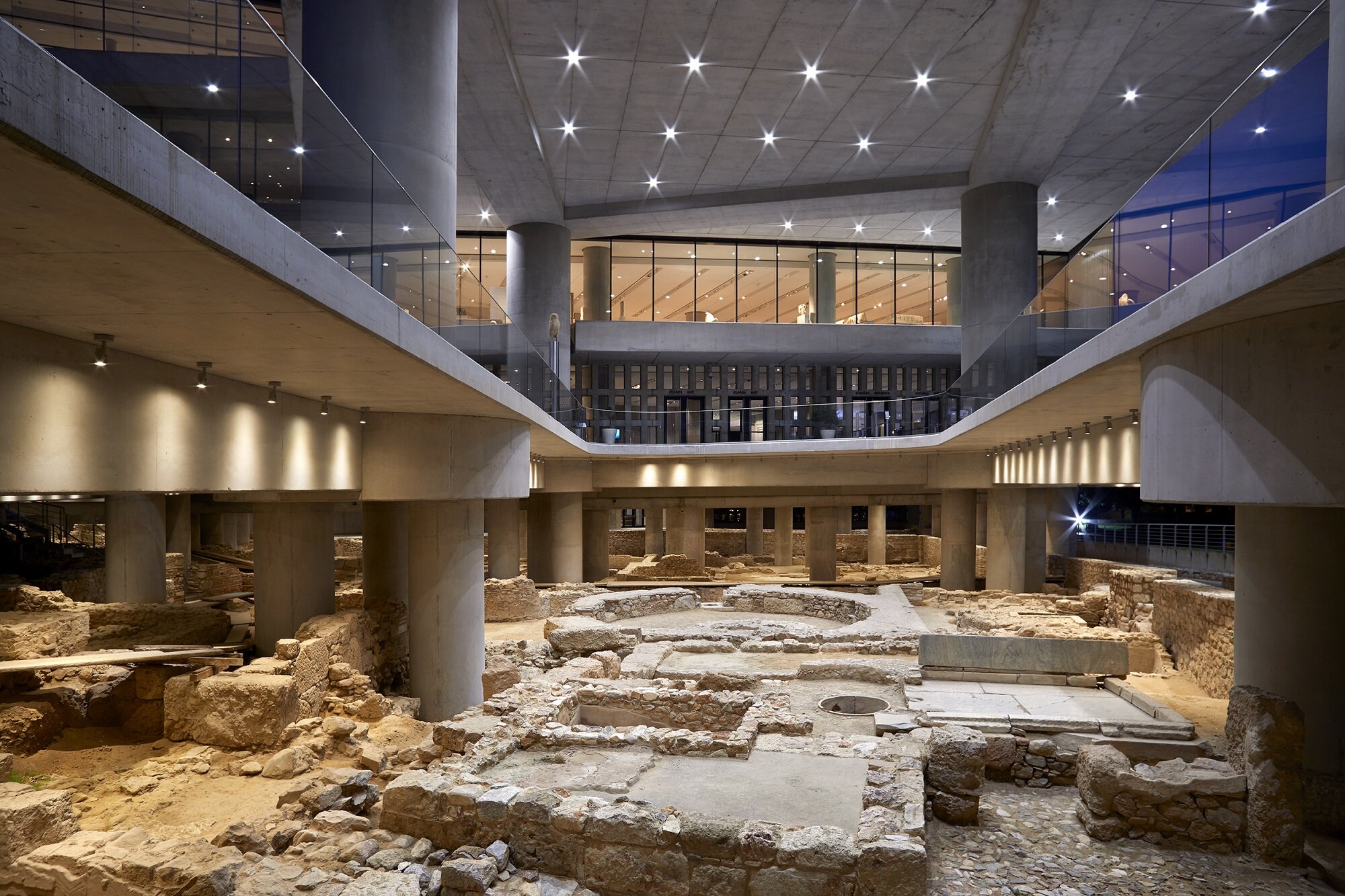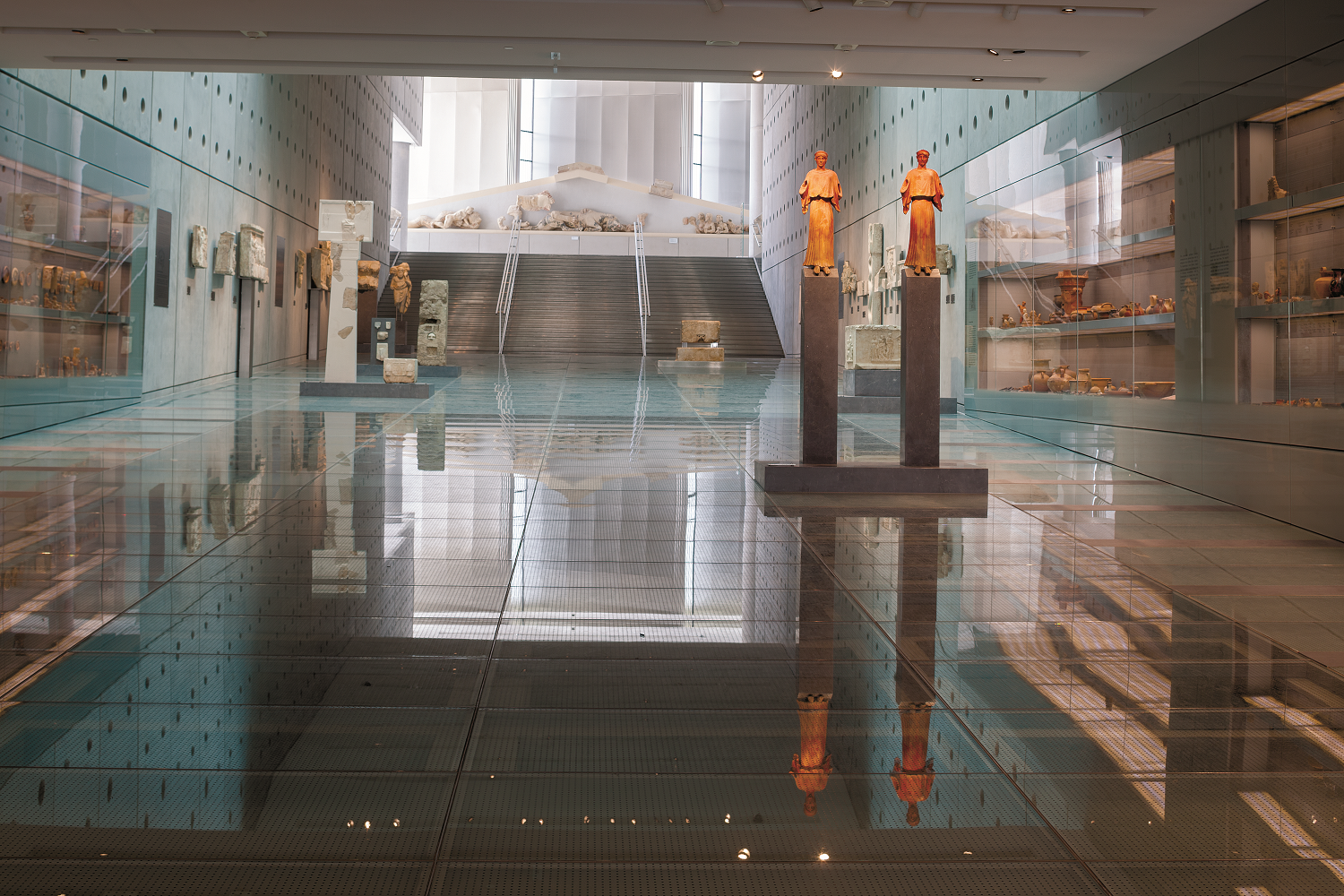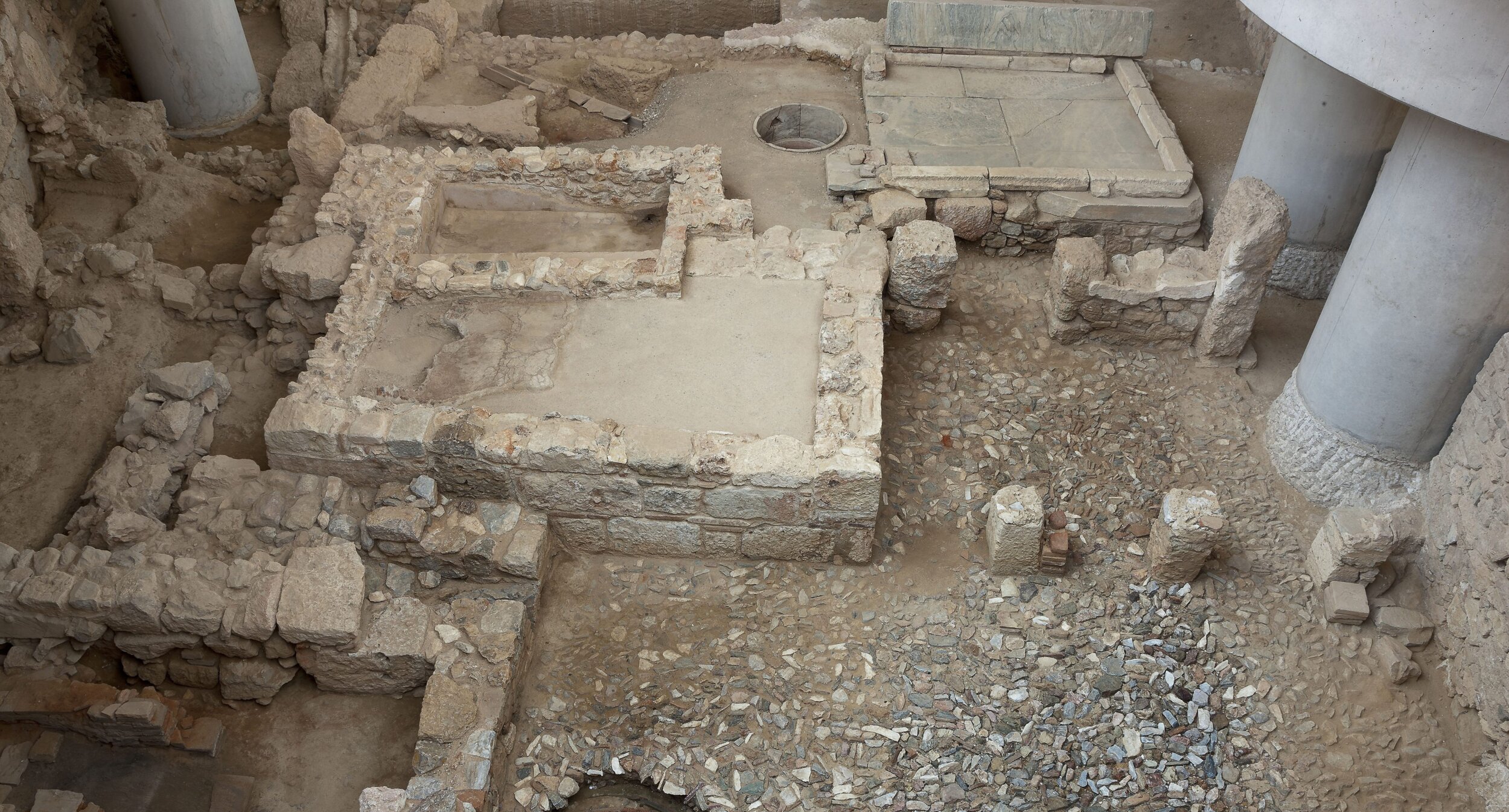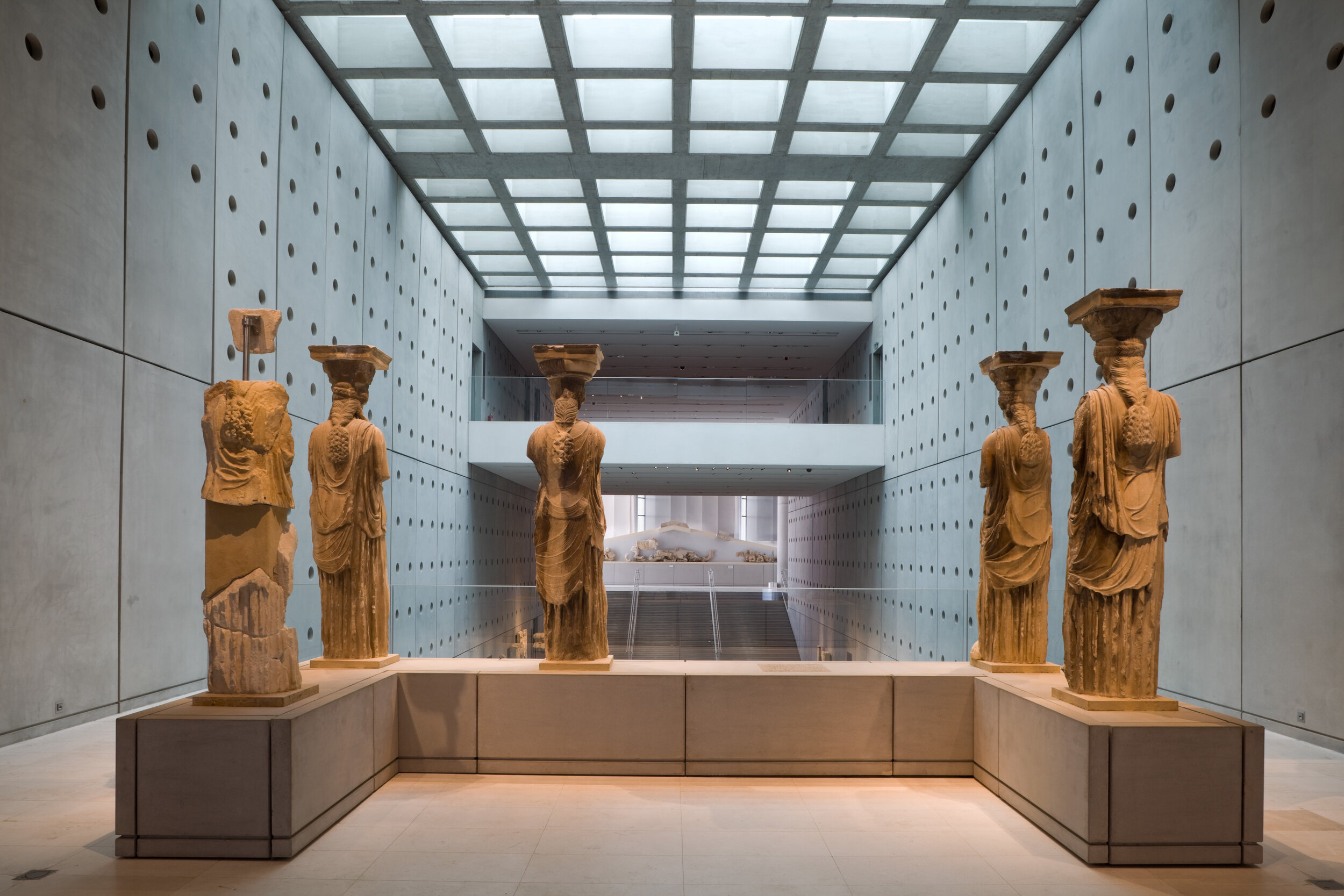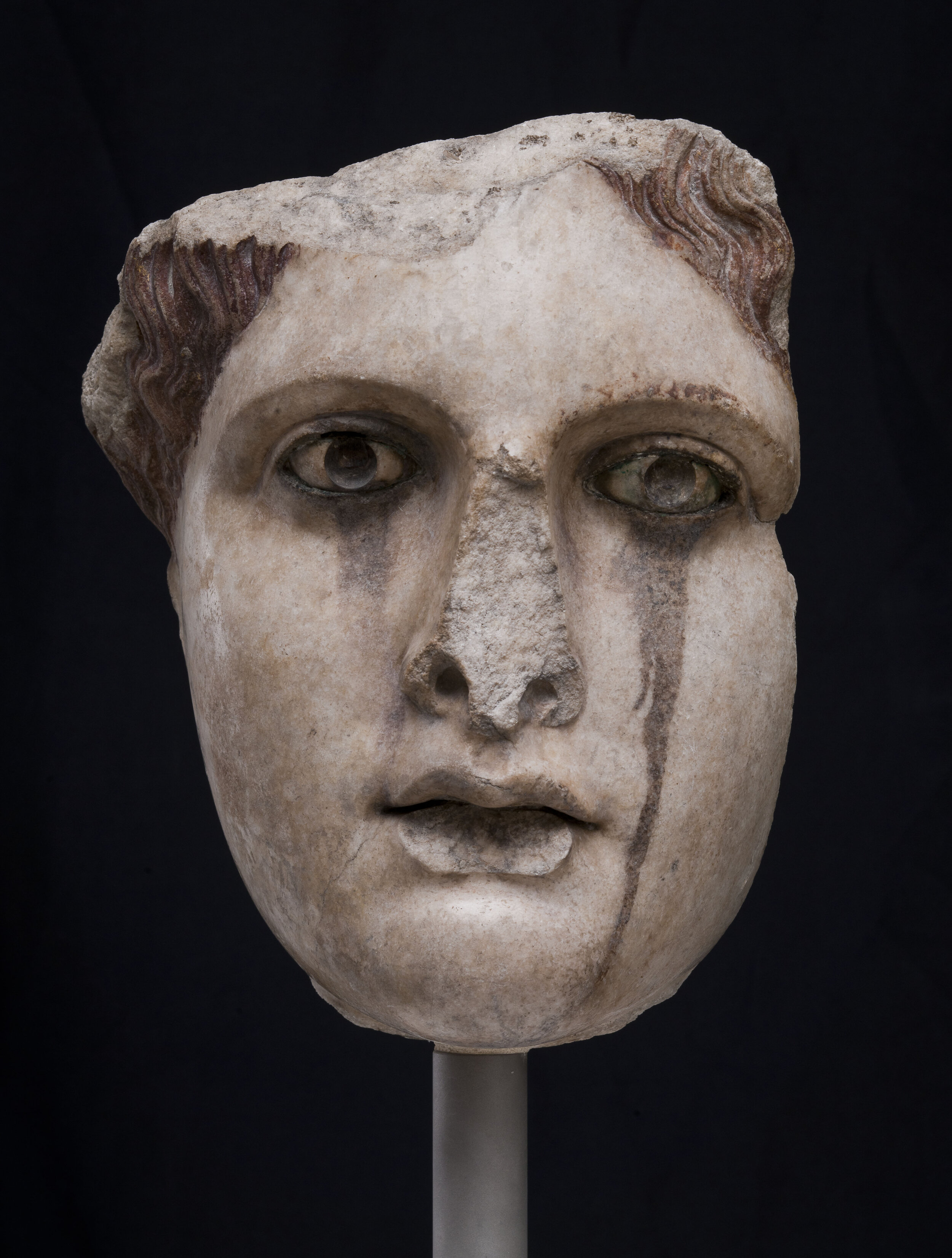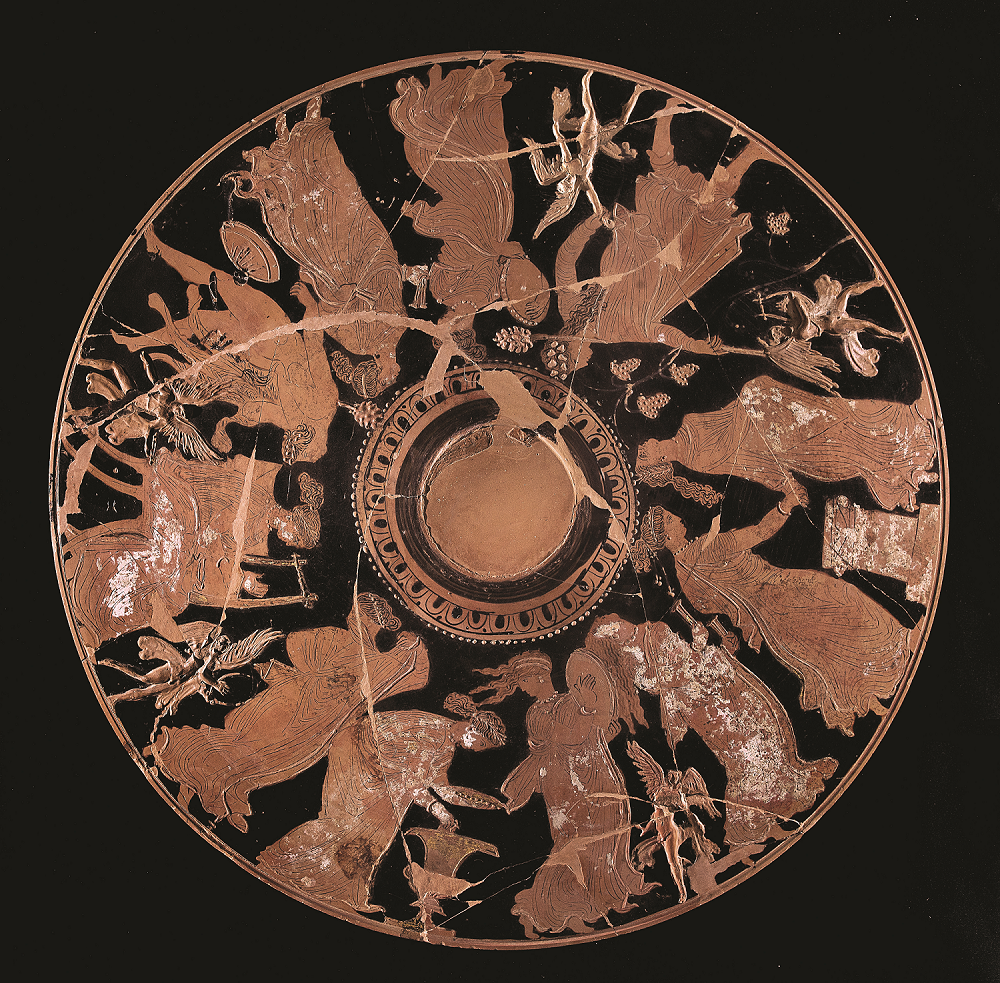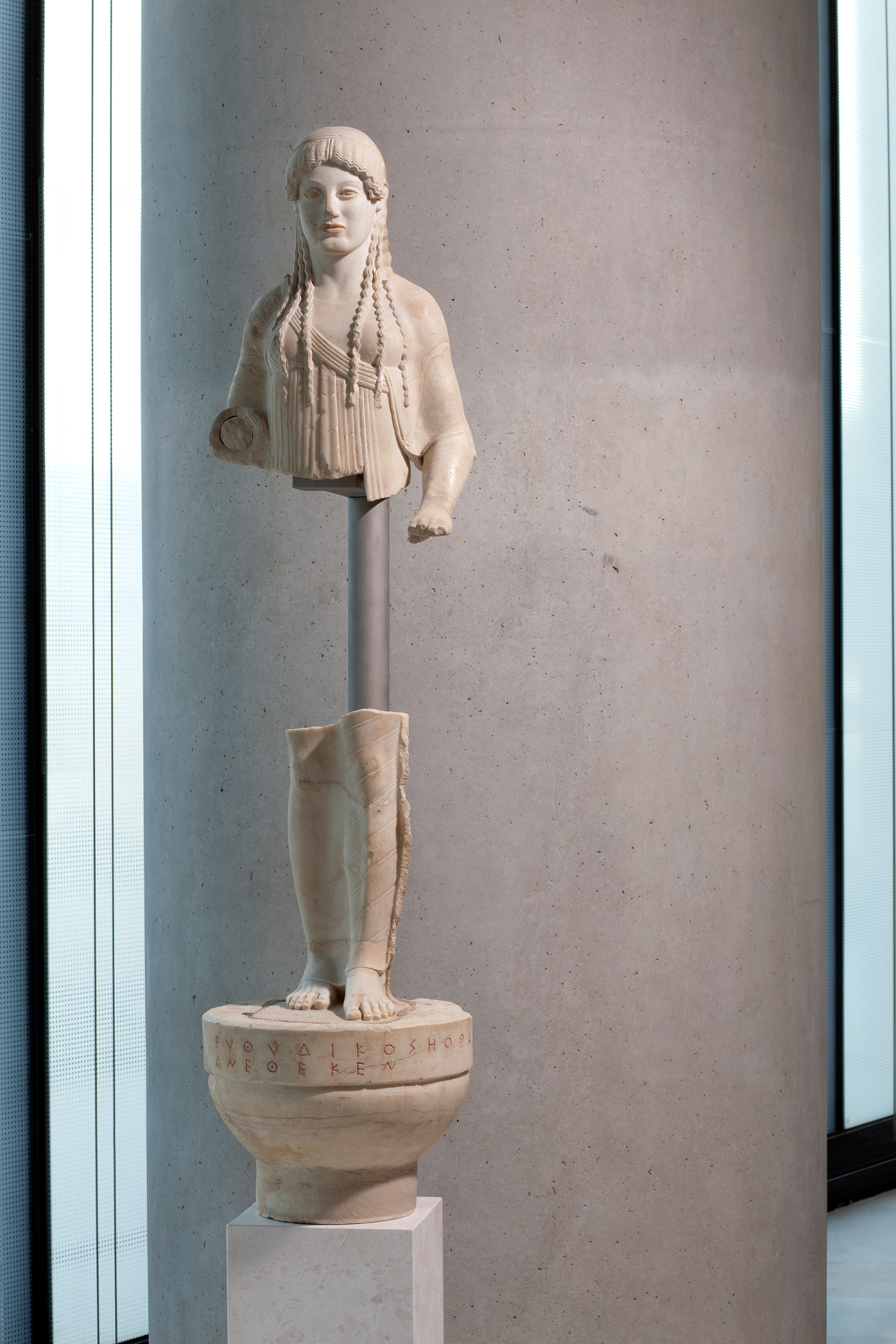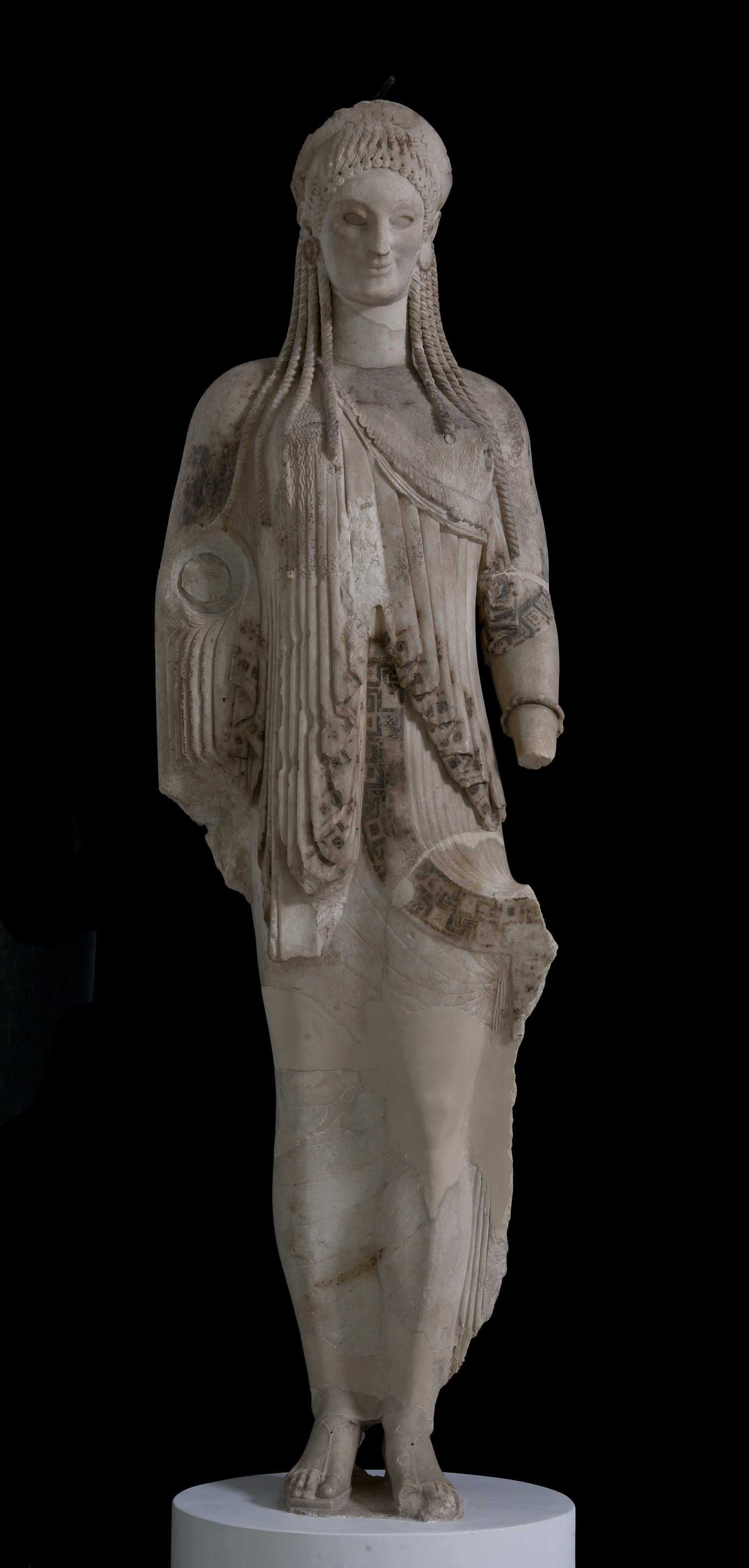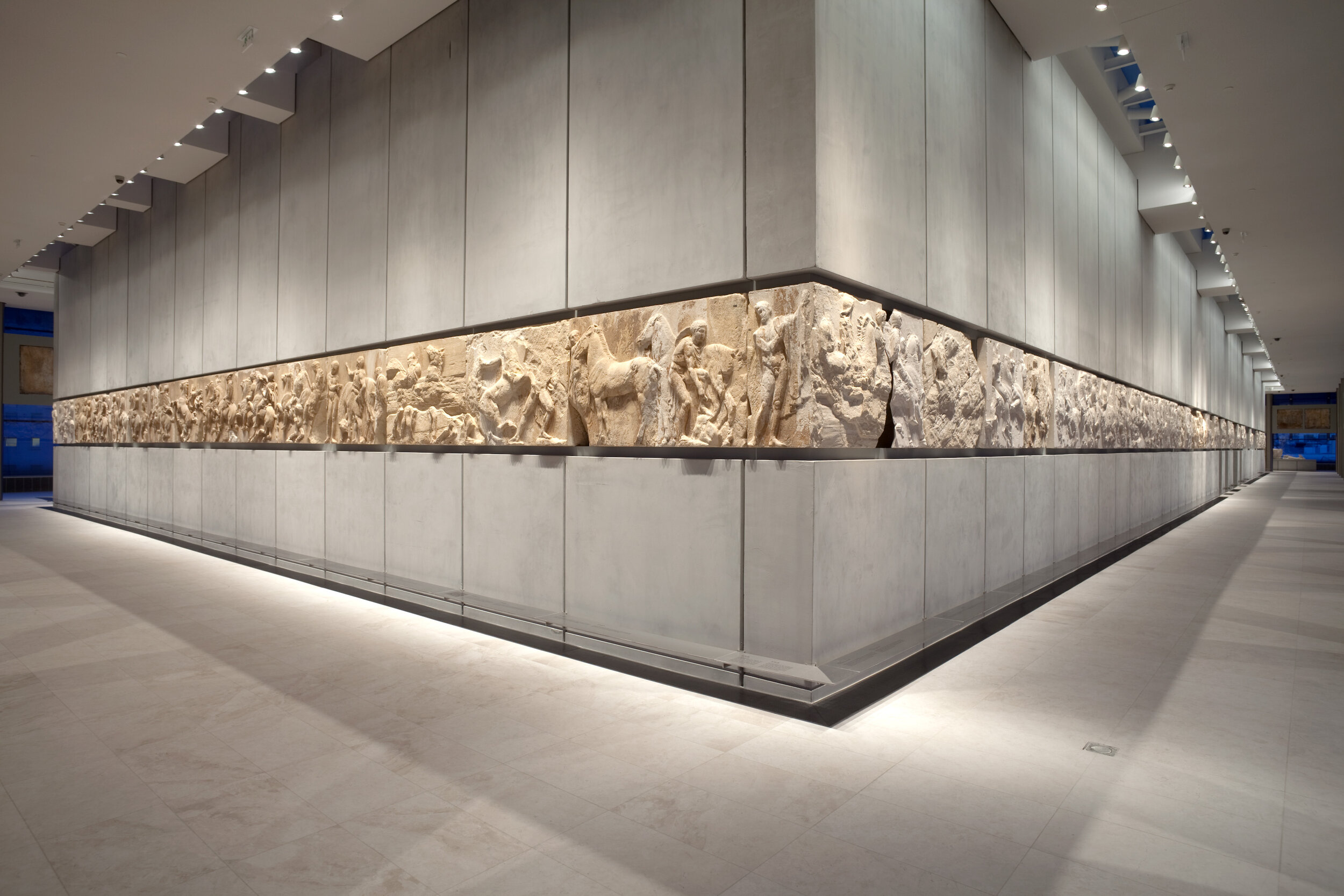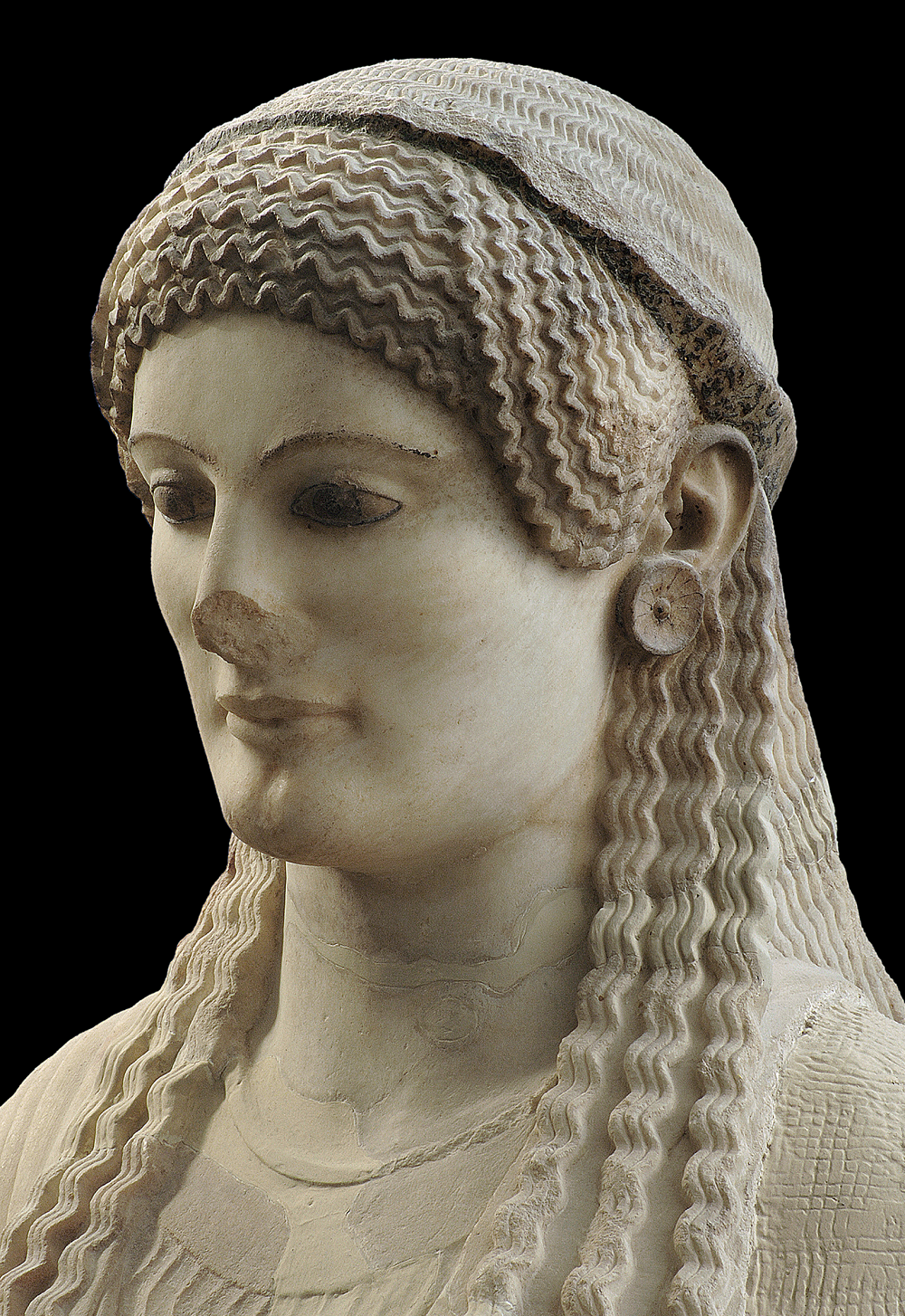Dimitrios Pandermalis is Professor Emeritus of Classical Archeology at the Aristotle University of Thessaloniki, where he has served as President of the History and Archeology Department and Dean of the Philosophical School. He is the President of the Acropolis Museum, and Director of Aristotle University's archeological excavations at the ancient site of Dion on the foothills of Mount Olympus. There he has conducted innovative programs converting the excavated area into an archeological and environmental park.
He has presented lectures and seminars on classical archeology at many institutions internationally and is the author of more than 60 publications on the subject. He is an ordinary member of the Archeological Society in Athens and of the German Archeological Institute in Berlin.
THE CREATIVE PROCESS
Dimitrios Pandermalis, tell us a little about the creation of the Acropolis Museum.
DIMITRIOS PANDERMALIS
The museum is very friendly to visitors. It's organized in a way that people can enjoy each of these masterpieces, therefore, we have the exhibits totally free from showcases and other barrier constructions. And people move between these sculptures as they did in antiquity, the ancient Athenians. It is very similar. And we have also inside balconies for other visitors to watch the visitors in the exhibition hall. We normally use daylight for the promotion of the pieces. Today, it's a bit overcast, so we need that bit of help, but daylight is very important because these pieces were 90 percent in a free area on the Acropolis, so the view changed during the day and during the seasons of the year. Here, a bit higher from an archaic gallery with all these pieces being from the sixth century B.C.
THE CREATIVE PROCESS
And tell us about your background.
PANDERMALIS
I was a professor of classical archaeology at the University of Thessaloniki in Northern Greece. I studied in Greece and Germany and made many trips abroad. I went many times to the United States. I organized exhibitions in New York. I have been working for the Acropolis Museum since 2000. So I have been here 20 years.
THE CREATIVE PROCESS
There was an earlier incarnation of the museum on this site?
PANDERMALIS
It was a small museum, one-twentieth the size of this one on the top of the Acropolis, which is now for an exhibition for the restoration work of the Acropolis, but all the important pieces are in the museum.
THE CREATIVE PROCESS
So you were telling us about your background as an archeologist. What attracted you to that discipline?
PANDERMALIS
I live in a country with a lot of ancient monuments, and I decided to study history and archeology. And from the time I was a student, I participated in excavations with the university and I was thrilled by this job to reveal important pieces of art and history. And to open, so to speak, the earth and take from the heart of the earth culture from very early periods. So later I went to Germany to specialize in Ancient Greek art. I came back. I was a professor for over thirty-five years at the University of Thessaloniki. I made by myself excavations at the foothills of Mt. Olympus. I was responsible there for the construction of a museum, of the transformation of the site in a huge archeological park. I revealed a lot of marble statues, inscriptions, coins, mosaics, a lot of things for the first time in this area. And later, in the year 2000, I became responsible for the construction of a new museum for Acropolis. And in the year 2009, we opened the museum to the public. This year, we're going to open in the lower level of the museum a large excavation of a neighborhood of ancient Athens and, additional to this museum, in the lower level, a museum of this area of the ancient city.
THE CREATIVE PROCESS
And so it involves people in the wonder of archaeology that you experience, which I think is so important. It's nice to see it in these settings, which I see you've made you and your curatorial design architectural team made it so that people can flow through this space, and then added this other development where they can get that wonder being an archaeologist. Hopefully inspiring archaeologists in the future.
PANDERMALIS
I hope so. At the moment, the main target is the visitors of the museum. We try to present in a fresh way the genuine classical of the 5th century B.C. of the period of Pericles and Phidias. We study the reactions of the visitors and their experience. What is the influence of viewing these pieces? If these pieces really say something to the souls and the hearts of visitors. We improve all the time the displays, and we look for special facilities for visitors. And additionally, we also organized temporary exhibitions. We take pieces from the margins of Greece, from important sites that are not so well-known, and we present these artifacts and art pieces in the museum. So two words, I would say this museum tries to make internationally the classical period familiar to visitors to add to explain to them how important these periods were because these periods influenced Roman times, Roman art, and later Medieval and Renaissance art. It was an inspiring period for all centuries up till today.
THE CREATIVE PROCESS
It's the basis of so many things. Without realizing it, we're all Greek in a sense.
PANDERMALIS
And our past is the past of the Western world.
THE CREATIVE PROCESS
Well, that's one thing I encounter because this is an education initiative and there are so many students who just aren't informed about the past, aren't informed about history. We're looking so much to the future, but if you don't have a proper framework, how can we do that well? How can we enjoy our lives? And so what are some of the things that we could learn about daily life then? As you look back into the past, as you imagine yourself into the past, what are we forgetting about the way life was then? I think we are living in confusing times now.
PANDERMALIS
Yes, this is true. I think that contact with ancient civilizations is very important because we get to have in our life a third dimension. If we live only in the present, we don't understand what happened many thousand years ago. We don't realize what the development of humanity really is. I think it's very helpful to know history. I don't believe that history can teach for the future, but history can give us another dimension, can make us wiser with more abilities to judge our present. Sometimes we think that we invented everything, but this is not true. The history of human thinking is very important, is very useful for us to know different thinking of other people. At the end of the day, multicultural civilization is also very helpful today. I know, for myself, for example, I concentrate on antiquity, but sometimes I work on other civilizations. Some months ago I organized an exhibition on a very famous Chinese emperor – Qianlong (1711-99). And through this opportunity, I studied a little about Chinese culture, and I found very exciting things. And I can compare these things with our Western civilization. All this is very fruitful because we open our eyes, and we are not going on only one track. There are different approaches in life and different interpretations of the world and societies.
THE CREATIVE PROCESS
It really is interesting. I like to think that the world is like a book. So we have these different chapters, but we are telling the same story.
PANDERMALIS
This is true.
THE CREATIVE PROCESS
You still continue to teach?
PANDERMALIS
I was teaching up to the year 2007. Now I give lectures around the world in different universities from China to the United States. I have contact with young people and students. I think knowing more about ancient civilizations can help young people.
THE CREATIVE PROCESS
And do you come from a family of archeologists or historians?
PANDERMALIS
No, no. My father was a tradesman, a more practical person, and my mother has a classical education, but practically it was my own decision to pursue a study of the humanities.
THE CREATIVE PROCESS
And which teachers had been important in igniting your interest. What did they pass on to you
PANDERMALIS
I have had very good Greek teachers. First of all, at university. My teacher, the man who discovered the Royal Tombs in Northern Greece in the Kingdom of Ancient Macedonia. Then I had star professors in Germany. So professors of world influence. So I was very happy to have these teachers. It was very helpful for me, for my career.
THE CREATIVE PROCESS
Having wonderful teachers is something we should all have, but one thing is learning on-site and learning from text. And I feel like I should mention, one of the reasons for creating this beautifully-designed museum is to bring back home so we can learn from the Parthenon Marbles that belong back in Greece. So what are your hopes for that? What's happening now?
PANDERMALIS
It is a very difficult cultural problem. I think. Okay, I can understand that these pieces for 200 years have been in the United Kingdom, but now there is no reason for them to stay longer over there. We have a very beautiful home for them opposite the Acropolis. A visitor can enjoy in the museum the sculpture opposite of the regional architecture of Classical times. I think through talks and through diplomatic actions, we could find a solution. The main thing is that these marbles are divided. We possess in Greece some heads and they possess in London the bodies. A half figure is in Athens, a half figure is in London. This separation is not correct, and they should be reunified to give a complete idea of a masterpiece like this one.
THE CREATIVE PROCESS
Thank you very much, Professor Dimitrios Pandermalis for all you are doing in this museum to educate and inspire future generations of potential archeologists or just those who appreciate history. Thank you for adding your voice to The Creative Process.
PANDERMALIS
Thank you very much.
Excerpt of a 5,000 word interview which will be published across our network of participating journals in the coming weeks. This interview was conducted by Mia Funk with the participation of collaborating universities and students. Associate Interviews Producer on this podcast was Tess Stroh. Digital Media Coordinator is Yu Young Lee. “Winter Time” was composed by Nikolas Anadolis and performed by the Athenian Trio.
Find us on Apple Podcasts, Spotify, Google Podcasts, Podcast Addict, Pocket Casts, Breaker, Castbox, TuneIn, Overcast, RadioPublic, Podtail, and Listen Notes, among others.
Mia Funk is an artist, interviewer and founder of The Creative Process.
